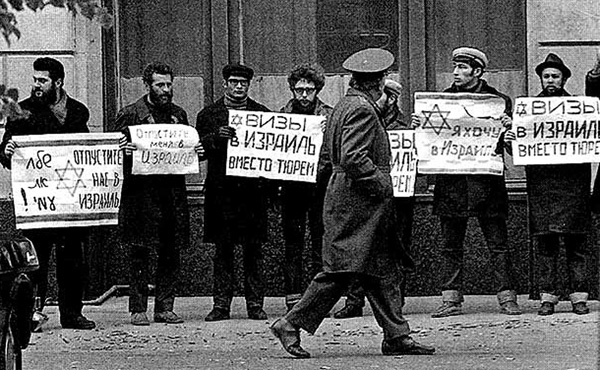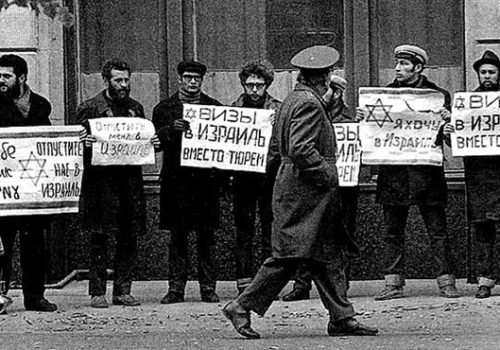“The Letter of the Eighteen”: A Challenge to the World
In August 1969, eighteen families of Georgian Jews gathered in Kutaisi and signed an appeal to the UN:
Operation “Wedding”
In 1970, a group of Jews and dissidents led by Mark Dymshits and Eduard Kuznetsov attempted to hijack a plane to escape to the West and then reach Israel. The plan was codenamed Operation Wedding.
“Eretz Israel” and Cultural Resistance
On March 27, 1971, KGB chief Yuri Andropov reported to the Communist Party about a letter intercepted by censors. It had been sent by Alla Smelyanskaya, a translator for Intourist, who mailed to Israel a song written by her husband titled “Eretz Israel.”
Letters and “Refuseniks”
In the 1970s, thousands of letters were sent to newspapers:
Post-Soviet Identity: Double Loyalty Without Conflict
The collapse of the USSR ended the state’s antisemitic and anti-Zionist campaign and opened the era of free repatriation. With the end of official antisemitism and the establishment of diplomatic relations with Israel, the old dilemma, whether solidarity with Israel meant disloyalty to the Soviet regime, ceased to exist.
Repatriate Day: A Time for Memory, Gratitude, and Hard Questions
Does everyone with Jewish roots truly have the right to a “safe harbor”, even if that harbor is far from calm, in Israel? This question divides not only the Knesset but families themselves. On one side, fears of a “tourist aliyah” without integration; on the other, the moral duty not to close the gates before Jews and their descendants.




